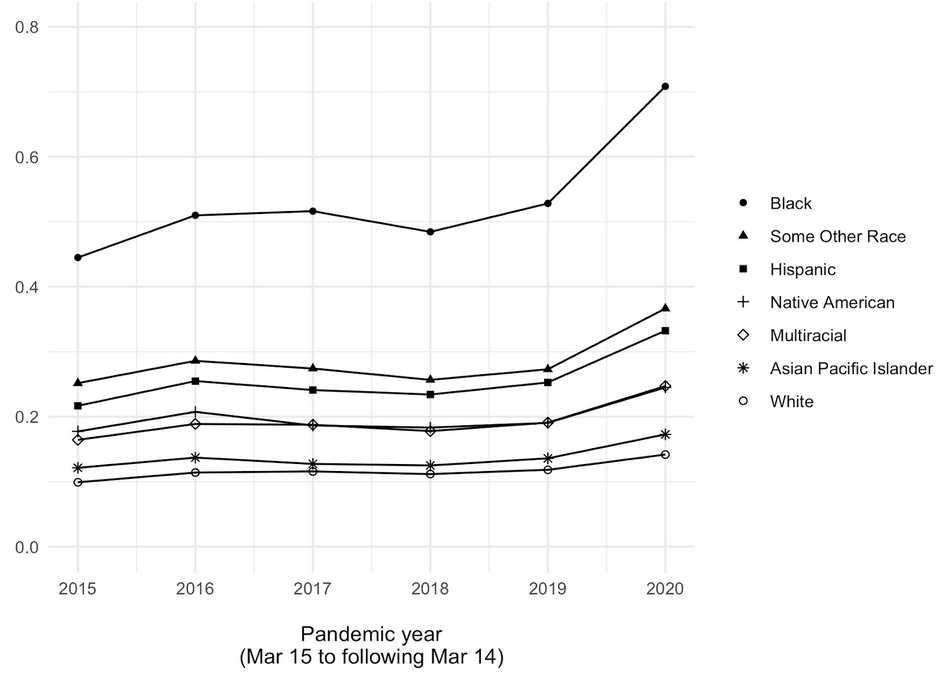What To Know Today
Black kids are overexposed to gun violence. The pandemic made disparities worse. In the five years before 2020, an average of 9 million children ages 5 to 17 lived in a Census tract where there had been at least one gun homicide annually. That exposure risk was 4.4 times higher for Black kids and 2.1 times higher for Hispanic kids than for white children, the lowest-risk group. In the first year of the pandemic, according to a new study by the American Journal of Preventive Medicine, 11 million children were exposed to gun violence but Black and Hispanic kids endured the biggest jump. Where racial disparities are biggest: While the South saw the highest overall rates of neighborhood gun violence exposure for children, the racial disparities were much larger in the Northeast and Midwest, which researchers suggest could be linked to high rates of residential racial segregation. What it means: “These findings highlight the importance of firearm violence exposure as a source of racial inequity starting in childhood, the importance of surveillance to track child exposure to firearm violence, and the need for substantial investments in specific policies and programs that prevent violence,” the authors wrote. Among the specific programs the researchers mention are individualized community violence intervention like street outreach and violence interruption, place-based strategies, and targeted programs for at-risk young people in school settings.

Philadelphia becomes the latest city to add gun violence prevention services to 2-1-1 hotline. Residents can already call the number for help with food or housing security. As of Monday, they can also get access to gun violence prevention resources. The line is now staffed 24/7 with so-called navigators who refer callers to nonprofit organizations that may be able to help with their individual situation related to gun violence. Philly partnered with the local chapter of the nonprofit United Way to introduce the new resource. St. Louis took a similar approach in December of 2020, as we reported. We also recommend checking out Up the Block: Our resource hub for Philadelphians affected by violence.
A U.S. bankruptcy judge approves the $73M Remington settlement with Sandy Hook families. On Tuesday, Judge Clifton R. Jessup Jr. called on four insurers of the bankrupt gunmaker to make full payouts after Remington reached a settlement with the families of nine of the 26 people killed in the 2012 shooting. From The Trace: The settlement allowed the gunmaker to shield some details about the industry’s internal workings, but experts say the case likely offers a legal playbook for future actions against the gun industry.
Maryland Legislature passes bill to ban the possession or sale of ghost guns. The legislation, passed Tuesday, amends the definition of a firearm to include the unfinished frames that are a common building block for making ghost guns. The bill also bans the sale and possession of guns without serial numbers. If the law goes into effect, Maryland will join the nine other states and D.C. with laws restricting the ownership, manufacture, or possession of unserialized ghost guns or ghost gun kits, according to a tally by the gun control group Giffords. (Virginia has a related law that restricts undetectable plastic firearms.)
Data Point
$300,000 — the funding from the recent $1.5 trillion government spending bill that will go to Advance Peace in Fresno, California. At least nine cities have signed up for the program, which provides young people deemed at risk for gun crime involvement with intensive mentorship and financial incentives to stay out of trouble. [The Fresno Bee]
